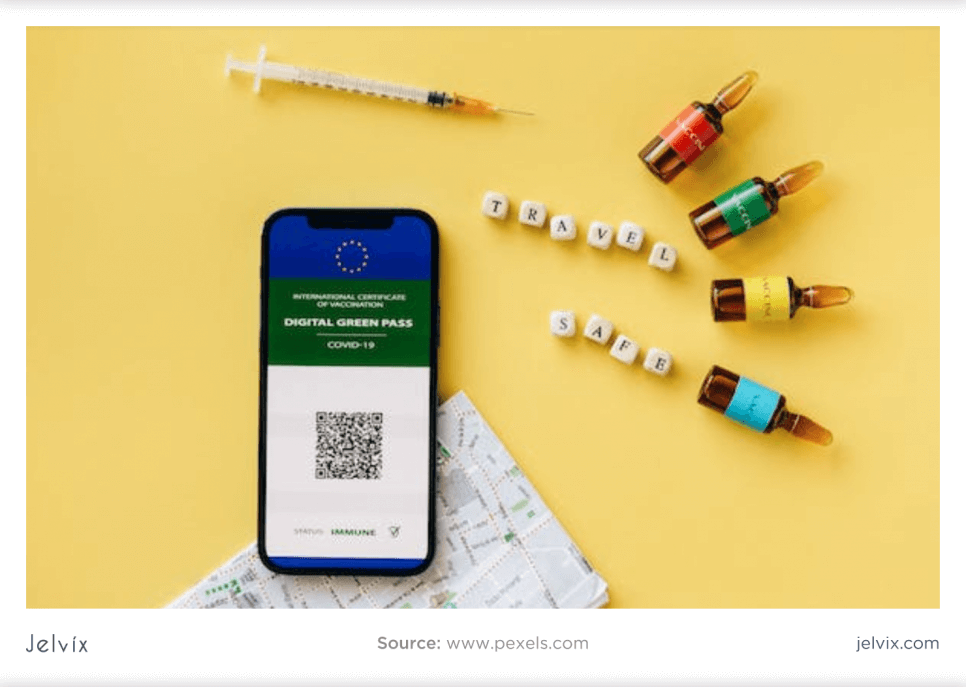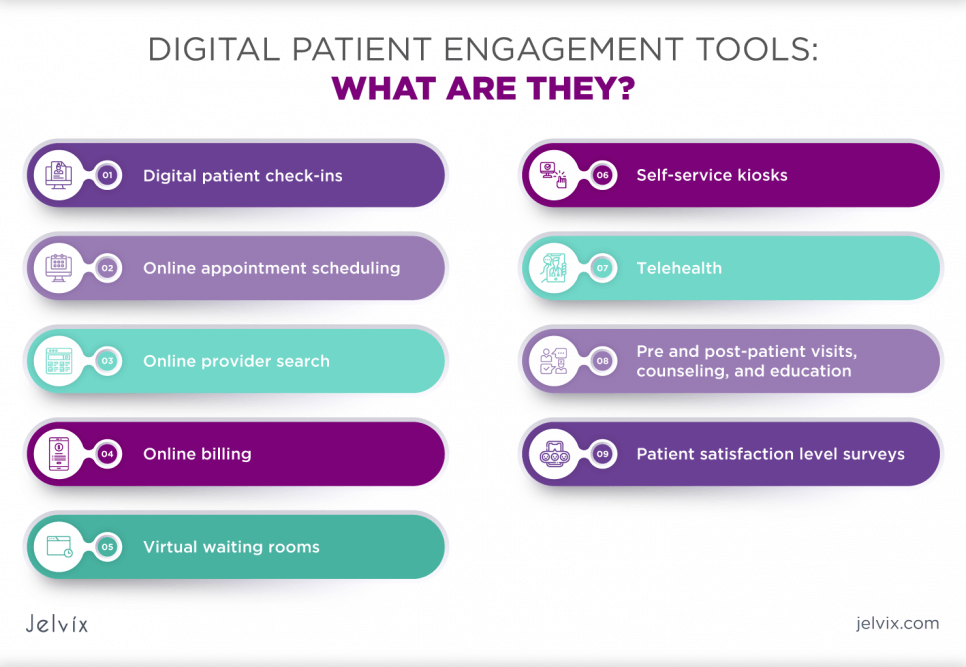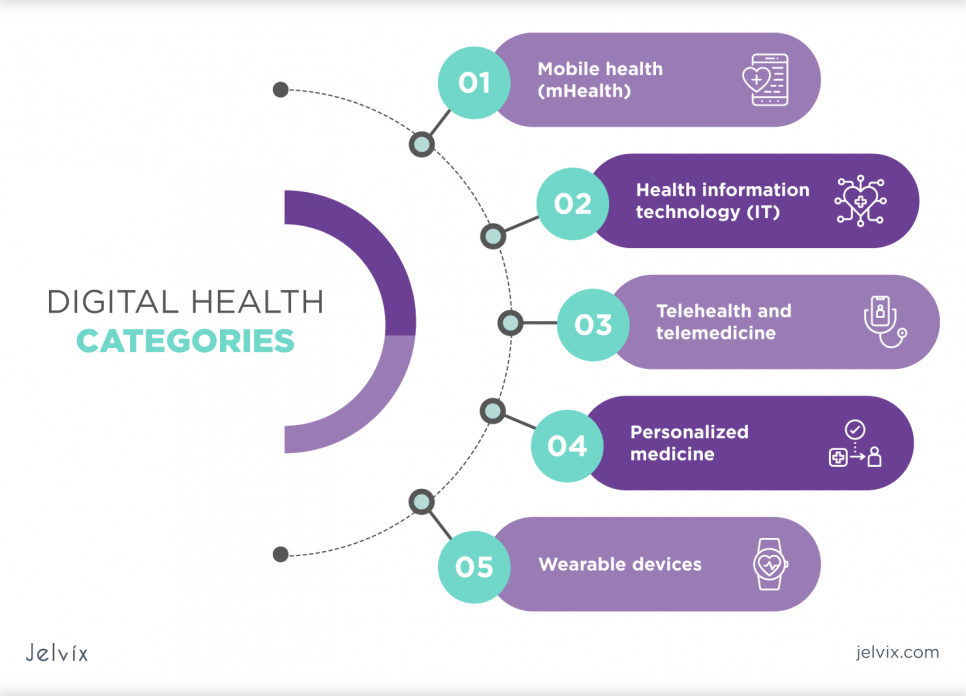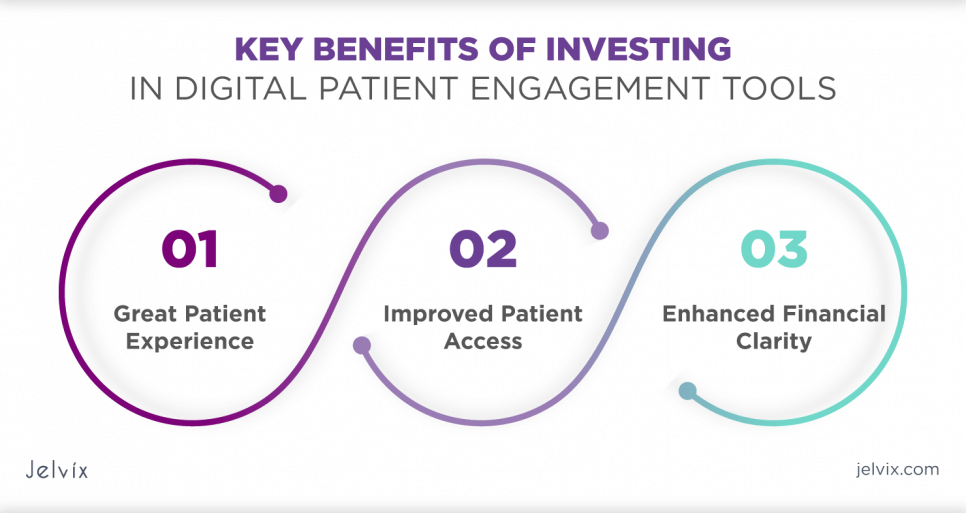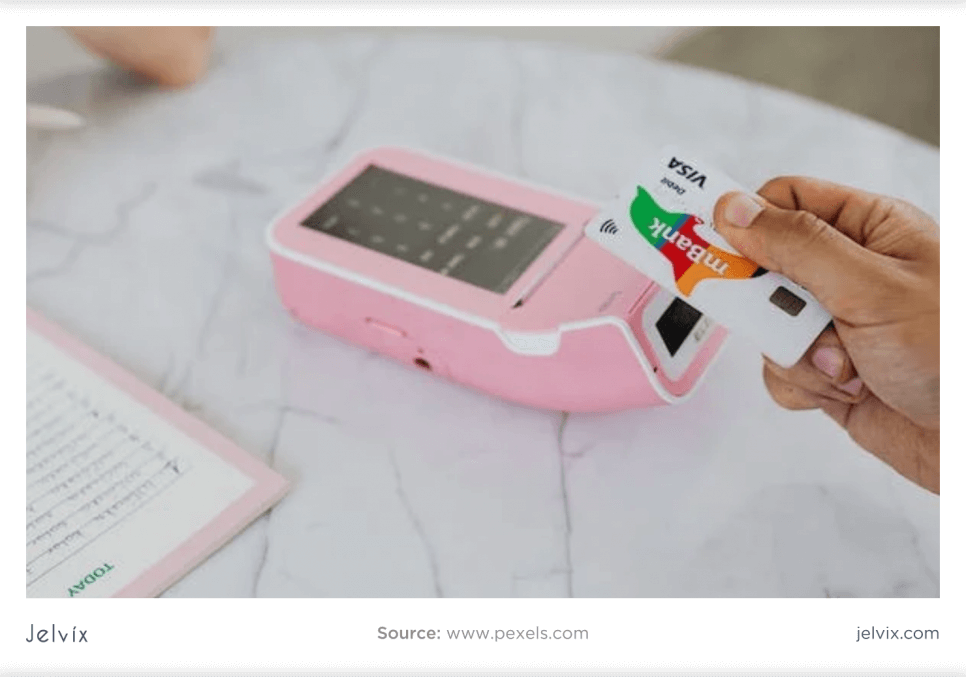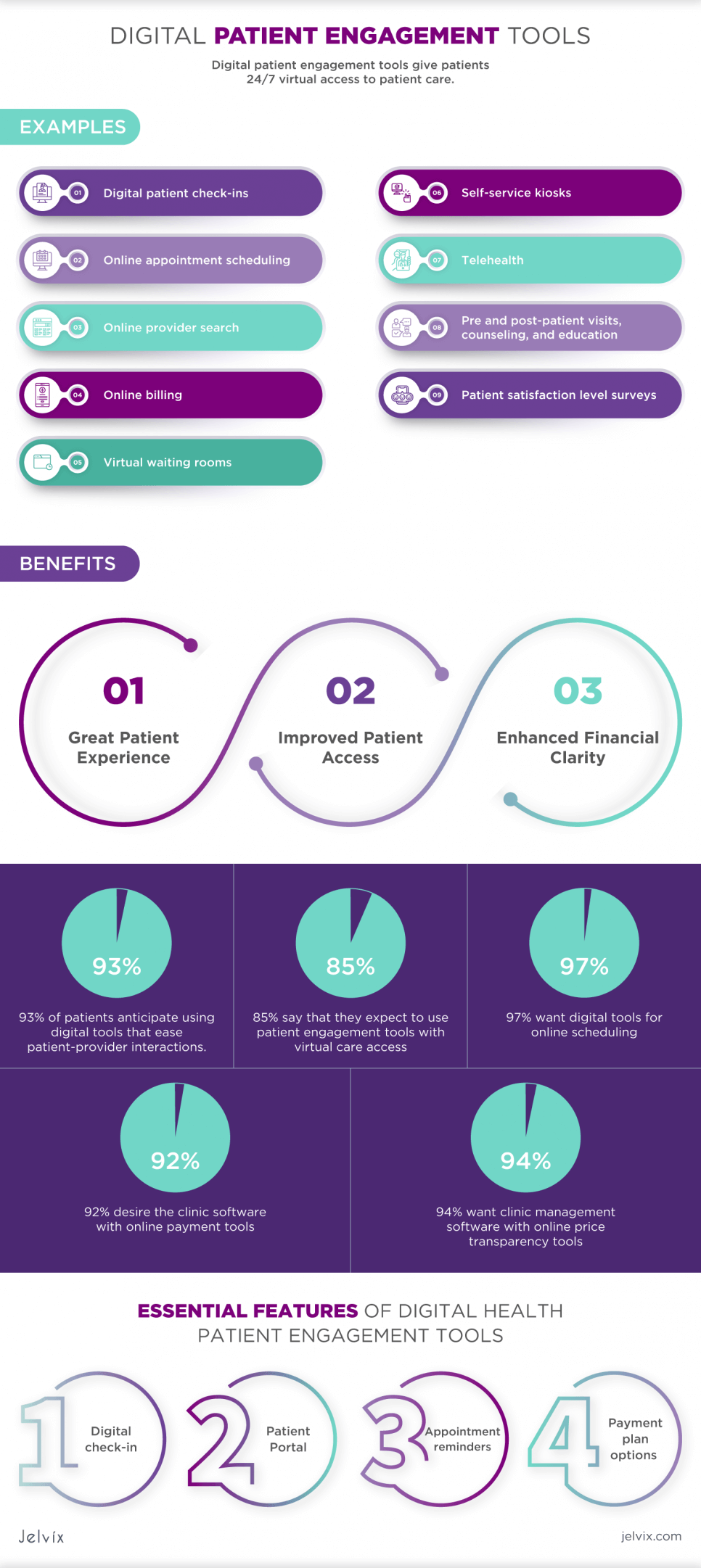Did you ever think that a time will come when patients will take charge of their healthcare management? Well, with the advancement in digital health technology, patients today have more control over their healthcare than ever before.
After all, who doesn’t enjoy overseeing their wellness? In fact, 90% of patients say they prefer using digital patient engagement tools to self-manage their healthcare. They want to take charge of the following:
- Access their medical information;
- Refill their prescriptions;
- Book their appointments and medical checkups online.
Indeed there’s no better time for healthcare providers to manage their patients digitally than now. It feels suitable for patients to use customized digital engagement tools, and everyone will seek to benefit from personalized care plans.
It’s necessary for healthcare providers to implement convenient tools for patient engagement. Although many industrial leaders have spearheaded digital healthcare to grow in popularity, medical institutions must vet to ensure they employ the best patient management software.
That way, your healthcare facility will be able to offer the right solutions and remain relevant and competitive within the industry. Remember that offering the proper patient care begins with a good reputation. This plays a significant role in how individuals and corporations choose healthcare facilities.
The reputation helps the public understand the level of patient care and expertise they should expect from your facility. So, it helps them determine which particular doctors and care providers they should choose for their healthcare needs.
Our article examines why healthcare sectors need digital patient engagement tools. But, first, let’s find out what digital patient engagement tools are.
Digital Patient Engagement Tools: What Are They?
Digital patient engagement tools give patients 24/7 virtual access to patient care. Patients can carry out routine tasks concerning their medical care flexibly. So, as a digitally engaged individual, you get to understand how to employ these tools to impact your health outcome positively.
More so, the best patient management software is generated to improve patient-clinician relationships. The medical practice management software makes the coordination of services easier. Hence, healthcare administrators manage to save time and costs. This is made possible by automated patient scheduling procedures.
Read about home physical therapy exercise app development use case developed by Jelvix project team.
The self-service software tools enable patients to engage with health providers in the most convenient way. Thus, digital tools can use asynchronous communication to offer real-time engagement, such as:
- Secure patient-doctor messaging;
- Live online chats about a patient’s treatment and progress.
Here, healthcare providers can establish digital patient engagement solutions at various points along the patient’s journey. As a practitioner, you use the digital front door right from when your patients feel unwell until the time they leave the clinic.
Thus, automated patient engagement solutions are the key component for medical institutions to engage patients appropriately and throughout their medical aid.
So, as a clinical facility, your digital front door becomes the digital engagement tool you use to welcome patients into your office. You then use it to engage them all through their hospital visit. As a result, the patient enjoys a convenient, all-rounded experience.
Examples of digital patient engagement tools include:
- Digital patient check-ins;
- Online appointment scheduling;
- Online provider search;
- Online billing;
- Virtual waiting rooms;
- Self-service kiosks;
- Telehealth;
- Pre- and post-patient visits, counseling, and education;
- Patient satisfaction level surveys
What Is Digital Health, And How Is It Beneficial?
Digital health is a technology that employs computing platforms, internet connectivity, healthcare sensors, and related software. Healthcare practitioners now use the technology for various applications.
They use it to monitor patients’ general wellness and also as a medical device and product. The computing platforms are used as diagnostic tools; and to study and develop medical products.
The digital health categories include:
- Mobile health (mHealth);
- Health information technology (IT);
- Telehealth and telemedicine;
- Personalized medicine;
- Wearable devices.
Hence, mobile medical apps and software for clinics help practitioners by supporting the clinical decisions they make every day. Elements like artificial intelligence and machine learning are the technologies that are driving forces in digital healthcare.
Machine Learning (ML) and Big Data Healthcare Industry
Without machine learning, a lot of time and resources get lost daily in the global healthcare systems. A report by McKinsey projects that big data could save medicine suppliers and pharmaceuticals up to $100 billion yearly due to better efficiencies in clinical trials.
Think of the many misdiagnoses that may lead to:
- Additional yet avoidable tests;
- Delayed treatment plans;
- Reduced survival rates from what would have been if a disease had been identified earlier and correctly;
- False positives on tests.
So, machine learning benefits the healthcare sector in many ways. The technology is used to gather insights from vast medical data sets, hence resulting in the following:
- Enhanced clinicians’ decision-making;
- Improved patient well-being;
- Automated healthcare professionals’ workflows;
- Accelerated medical research;
- Enhanced operational efficiency.
ML helps general physicians, pathologists, radiologists, and other healthcare providers enjoy reduced workflow. This is made possible by employing algorithms to draw insights.
Automated workflows are designed around how healthcare teams function in the real world. This allows for easy information collection, sharing, and collaboration.
Hence, machine learning is leveraged to accelerate:
- Routine workflows;
- Data management;
- Diagnosis;
- Drug development;
- Treatment and regulatory activities in healthcare.
Benefits of Digital Patient Engagement And Clinic Software
Patient expectations are higher today, more than ever before. They want to complete almost any task they might face. Overall, patients want digital health tools that help better their interactions with the healthcare systems – making them more convenient and easier to use.
You’ll discover that the best patient management software will entirely change how you administer your patient services. The clinic’s software helps bring together every tool you need to enhance patient relationships and also boost revenue. You also save time and manage to achieve many other things.
So, the clinic software can be a significant investment. There are particular reasons why you should prioritize investing in digital patient engagement tools. You get to benefit from the services and benefits of digital engagement platforms and their best features.
According to patient data access news:
- 93% of patients anticipate using digital tools that ease patient-provider interactions;
- 85% say that they expect to use patient engagement tools with virtual care access;
- 97% want digital tools for online scheduling;
- 92% desire the clinic software with online payment tools;
- 94% want clinic management software with online price transparency tools.
Indeed, just like other businesses, healthcare organizations are not exempted from fulfilling patient expectations. Think about how you can schedule appointments, handle all your banking transactions on your phone, or book a vacation online via your phone.
The way you manage to do all these things almost effortlessly is the same way you can manage your health, hospital data, and doctor-patient relationship using the same device.
The key benefits of investing in digital patient engagement tools include:
-
Great Patient Experience
Previously, doctor-patient communication was one-way, flowing from healthcare providers to patients. But today, practitioners and patients are more collaborative.
Digital patient engagement in hospitals has made two-way communication possible. As a result, patients have more control over their health care. And they have the liberty to pass on some critical information to the practitioners.
Patients can speak with their providers and discuss their expectations and medical results digitally. Hence, they can change expectations and make decisions together.
All this is made possible with the rise of aspects like wearable technology and telemedicine. This has resulted in digital patient engagement platforms and tools that improve the patient experience remarkably.
Hence, your healthcare practice should consider how you can promote patient engagement through digital technology. Many other practices are now adopting these tools. So, you shouldn’t be left behind if you’re looking to advance in the industry.
Failure to offer your patients the smooth experiences they expect could make you lose them. In short, digital patient engagement tools can enhance your practice capacity to meet and even exceed patients’ expectations.
But, the biggest issue most healthcare providers need help with is finding the right practice management software for their patients to use.
-
Improved Patient Access
Digital technology has dramatically enhanced our access to various products, services, and pieces of information available. With digital patient engagement tools, patients benefit from greater access to their:
- Doctors;
- Health information;
- Treatment plans.
This has brought inconvenience both to the physicians and patients and eased the customary 9-to-5 business hours. Engagement tools allow them to get the medical aid they need at any time they might need it. At the same time, patients gain more comprehensive access to health data and records.
So, if you feel unwell, you can share your symptom details and treatment progress in real-time. This helps to better patients’ outcomes, with greater access to their treatment plans.
-
Enhanced Financial Clarity
Patients now play active roles in their healthcare processes. Patient management and clinic software has brought a massive shift in the healthcare sector’s payer responsibility.
Individuals get to absorb a greater share of healthcare costs. High co-pay and large deductible health plans lead patients to stay more alert about the financial part of their healthcare. They are also leading patients to shift how they make health-related decisions.
So, patients can do research and make informed decisions about things like:
- When to seek medical care;
- Which facility to visit for medical help.
Besides, digital patient engagement tools enable patients to gain financial clarity about the genuine costs of their treatment. Clear communication and clarity of costs are essential to help reduce patient no-shows.
It encourages the sick not to give up their treatments due to the fear of costs. Digital engagement tools can also add value to people by educating them on financial issues. People get to benefit from valuable resources that ease financial anxiety.
What Are the Important Features of Digital Engagement Tools?
There are various kinds of technologies that feature in digital patient engagement. Thus, when evaluating your practice management software, the two aspects you need to monitor closely include:
- Product design;
- Data security.
A well-designed patient management software will make things easier for your patients. Hence, you avoid a waste of resources on your part. More so, data security in the clinic software should be a big priority.
The software solution you incorporate in your facility should be in line with HIPAA privacy rules. This ensures the protection of patients’ sensitive information.
So, as a healthcare service provider, it’s your duty to ensure that you comply with state and federal data regulations. That way, you can enjoy the smooth operation of your patient engagement tools.
That said, essential features of digital health patient engagement tools include:
- Digital check-in;
- Patient Portal;
- Appointment reminders;
- Payment plan options.
Let’s discover more about each of the above features.
-
Digital Check-Ins
Digital check-in tools are an essential feature. They enable health facilities to save resources such as paper, pens, ink, and clipboards. The digital feature of the engagement tool satisfies patients’ need for convenience.
It helps them feel more invested and engaged with their healthcare provider. More so, the digital feature helps take off the pressure that many patients tend to feel in traditional hospital check-in scenarios.
Indeed, there are many benefits of digital check-ins. The tool makes checking in for treatments well-timed for patients, hence, efficient on the practitioners’ part. Here, you can quickly fill out things like:
- Disclosure forms;
- Privacy agreements;
- Family histories;
- Pre-existing condition forms.
Also, key information like the next appointment can be saved to autofill. So, digital check-in saves facilities from the inconvenience that comes with having to deal with vast amounts of check-in paperwork.
-
Patient Portals
Patient portals are an essential part of patient engagement tools. The individual patient portal is excellent in facilitating patient engagement and expanding their access to services.
The portal is also here to save medical practitioners time by letting patients manage various aspects of their health care. It offers ease of patient scheduling and payment of bills. Also, it allows smooth health record management and helps match up to the right service provider or specialist.
So, the portal is a digital engagement tool that allows the reliability of different patient services. It gives patients 24-hour access to their personal health information from anywhere.
Only with a secure username and password patients manage to view their essential health details, such as:
- Discharge summaries;
- Medications administered;
- Latest doctor visits;
- Immunizations;
- Lab results.
As a result, the portals allow patients to:
- Message their doctors and specialists privately;
- Request for prescription refills;
- Schedule appointments;
- Confirm benefits and insurance coverage;
- Update contact details;
- Make necessary payments;
- Download and fill in relevant forms;
- View informative materials.
Hence, your patient portal gives you control of your entire health and care. Patient portals also help save you time by allowing you to communicate with your health and support care providers in-between visits.
-
Appointment Reminders
Healthcare providers can now use patient management software to set automated appointments, follow-up notices, and reminders. Indeed, appointment reminders have made work so easy for practitioners already using them.
You might be wondering how to protect the facility’s revenue and ensure you don’t face numerous empty slots appointments. Understand that the automated appointment reminders will help reduce the number of patient no-shows. That way, you ensure that the appointment slots are not wasted. Hence, you get to safeguard the facility’s revenue.
Practitioners can set automated reminders to match the patient’s preferences. This gives providers more time to fill in the opened appointment slots. Essentially, these tools offer patients the capacity to inform the healthcare practice if they can or can’t make it to their appointment.
-
Payment Plans and Options
Patients cover a wider share of health care costs. Often, payment of hospital treatments and health care bills can cause a lot of stress and anxiety for individuals. It can cause them to avoid the essential care they need to get well.
One of the most common features of digital patient engagement tools is that providers should consider setting up digital payment plans and options for their patients. 68% of patients say they prefer digital patient payments in their clinical services.
Offering patients flexible payment options for their healthcare services makes patients feel highly considered. This option helps reduce patients’ stress. It also helps practices to lower cases of bad debts. Facilities also get to improve collections.
Conclusion
Technology has helped improve the patient experience and has also given patients more options. Today, patients expect to gain more access to their health records, treatment plans, hospital bills, etc. Overall, the digital patient engagement tool acts as a communications hub. Patients get the liberty to engage with their providers, schedule appointments, choose a flexible payment plan, pay bills, refill prescriptions, and so much more.
Thus, healthcare systems should promote patients’ capacity to attain the same using digital patient engagement tools. It feels good when a patient can be more engaged with their health care and enjoy streamlined relationships with practitioners. This will contribute to better outcomes by reducing patients’ strain and tension, hence improving the overall healthcare industry. Thankfully, digital health tools prove to enhance patient-doctor relationships significantly. The clinic software improves medical professionals’ capacities to diagnose and treat diseases accurately. The tools also act to enhance the delivery of top-notch health care for individual patients. As a result, patients get to benefit from better healthcare experiences.
In today’s digital age, patient engagement tools are revolutionizing the way individuals manage their healthcare, offering 24/7 access to medical information and services. To harness the full potential of these technologies, Healthcare software development by Jelvix can provide robust solutions that cater to the dynamic needs of both patients and healthcare providers.
To realize the benefits of digital patient engagement tools and accelerate their adoption, health companies may leverage the expertise of companies such as Jelvix. Feel free to contact Jelvix tech company and get your comprehensive assistance from a tech partner with years of experience and profound expertise today!
Daniel Martin has hands-on experience in digital marketing since 2007. He has been building teams and coaching others to foster innovation and solve real-time problems. Dan also enjoys photography and traveling.
Need a healthtech app?
Extend your development capacity with the dedicated team of professionals.

